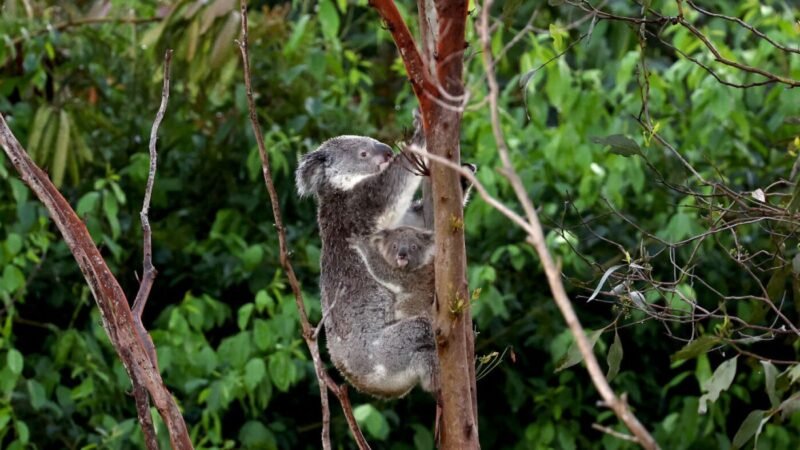Essential Insights
-
World-First Vaccine: A single-dose vaccine to protect koalas from chlamydia has been approved, marking a significant breakthrough after over 10 years of research at the University of the Sunshine Coast.
-
Disease Impact: Chlamydia is a leading cause of death in koalas, with infection rates reaching up to 70% in some populations, causing severe health issues like blindness and infertility.
-
Vaccine Effectiveness: The vaccine has shown promise by reducing infection rates, preventing disease progression, and lowering mortality by 64% during breeding ages, based on tests with both wild and captive koalas.
-
Regulatory Approval: The Australian Pesticides and Veterinary Medicines Authority has authorized the vaccine’s production and use for koalas until June 2027, offering hope in combating this devastating disease.
Australia has taken a significant step in wildlife conservation by approving a chlamydia vaccine for koalas. This decision marks a world-first effort to combat a disease that poses a severe threat to these iconic marsupials. Researchers at the University of the Sunshine Coast spent over 10 years developing the vaccine. They designed it as a single-dose treatment, simplifying its administration and increasing its effectiveness in the wild.
Chlamydia is a leading cause of death among koalas. It can lead to serious health issues, including blindness and infertility. Additionally, the disease often restricts affected koalas from finding food, which can ultimately lead to starvation. Antibiotic treatments have been available but are not always effective and cannot prevent future infections.
The vaccine offers hope. It has been tested on hundreds of koalas and shows promise in various ways. Not only does it reduce infection rates, but it also prevents the progression to severe illness. In some cases, it even helps to reverse existing symptoms. Recent studies indicate that the vaccine has decreased death rates from chlamydia by 64%, an impressive statistic that underscores its potential impact.
The Australian Pesticides and Veterinary Medicines Authority recognized the vaccine’s importance. They approved it for production and use, allowing for a broader application throughout the koala population. This advancement exemplifies how science can directly contribute to improving quality of life for wildlife and, by extension, ecosystems.
As the vaccine is rolled out, conservationists anticipate positive changes for koala populations. This innovation represents a significant leap in disease management technology, illustrating how targeted research can lead to breakthroughs that benefit both animals and the environments in which they live.
Continue Your Tech Journey
Explore the future of technology with our detailed insights on Artificial Intelligence.
Stay inspired by the vast knowledge available on Wikipedia.
SciV1

